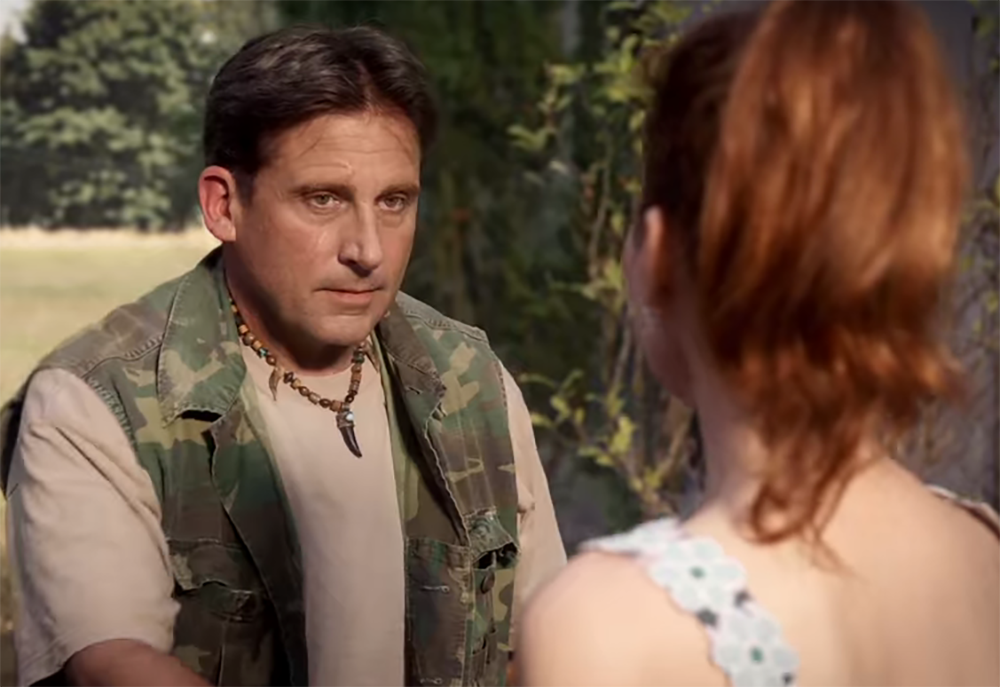Cinema is a creative reflection of what happens in society. And films that are based on real-life events take the front lead in making that happen. Inside a night bar, when an innocent Mark Hogancamp drunkenly reveals to a group of men that he has a fetish for wearing women’s shoes (stilettos), he is brutally assaulted and vilified for his “queer” nature, which, in addition to intense bodily harm, leaves him with acute memory loss and lifelong psychological damage. Much to the world’s surprise, though, he begins his unique healing process by making a World War II era–styled miniature village of plastic dolls in his backyard, called “Marwen,” and spends most of his time there, living away from the society.
Robert Zemeckis’ “Welcome to Marwen” brings one of our all-time favourite actors, Steve Carell, portraying the true account of Mark Hogancamp’s harrowing experience of societal discrimination in a world we call “free.” Every day, minority genders in every part of the world go through never-ending trauma and social harassment. This social evil has grown so much in size that almost everyone, regardless of their gender or sexual orientation, tends to avoid certain places out of fear.
“Welcome to Marwen” narrates the social obscurity and isolation that follow a person’s life soon after they have been made a victim of hate crimes. In the movie, it is touching to see a person who is haunted by mental trauma and addicted to prescription drugs, now living in his own fun-sized world of Barbie-like beautiful dolls.
Following the plot, it turns out that Mark recalls the memories of his accident and re-creates his tough experience using miniature figurines, possibly to keep facing the scares until they can’t haunt him anymore. The aesthetically rich views of the moving dolls created by the animators are incredibly pleasing to the eye, and the swift transformation of real-life scenes from the animated ones is simply beyond amazing. The film uses some extremely beautiful VFX to showcase miniature figures in action—from driving a World War II–era military jeep to blowing away Nazi soldiers with bullet showers. It can instantly remind you of your good old days with G. I. Joe soldiers and the exquisitely designed Barbie dolls.
Other than gender discrimination, racial hatred is another subject addressed strongly in the film, and according to the story, the seeds of racial supremacy and divide were planted by men during the most troubling times. The battles that our nations fought with one another during the two world wars have had a deep influence in how we still see one another, even after so many years.

Gender bias and stereotyping are two more issues that have not only been highlighted keenly in the film, but challenged rather boldly, as the little Belgian village of Marwen is guarded not by typical male soldiers as you might expect, but by lovely-yet-dangerous women fighters who rarely show their enemies any mercy. It’s hard to recall any other similar film that addressed such a huge range of social issues in such an artistic manner.
“Welcome to Marwen” has taken its background from the 2010 documentary “Marwencol,” directed by Jeff Malmberg, which was the first time Mark’s story, along with his unique artistic talent, was brought to light. However, a story so sensitive and socially relevant couldn’t have reached masses by a documentary, and that too in 2010, when the audience didn’t have easy access to web content like today. And for Robert Zemeckis, re-creating an entertaining film after seven years to be watched by the global audience also meant adding some nice humor, classy dialogues, and some top-notch action supplementing the deeply moving subject.
At some points, though, the film drifts away from its central theme and pays more attention to certain offbeat elements. For some viewers, it might become difficult to hold on to the main subject of the story—so much so that if someone joins in the middle of the film, they might seem totally clueless about what genre they’re watching. And if there’s anything that can compensate for this off-steering, it is Steve Carell’s cheeky-yet-sensible aura that has vividly worked its magic on-screen.
At a time when the world is going through a lot, not only can we all hope for a less discriminatory society, but more importantly, work our way toward achieving one. And “Welcome to Marwen” can definitely be an inspiration!


